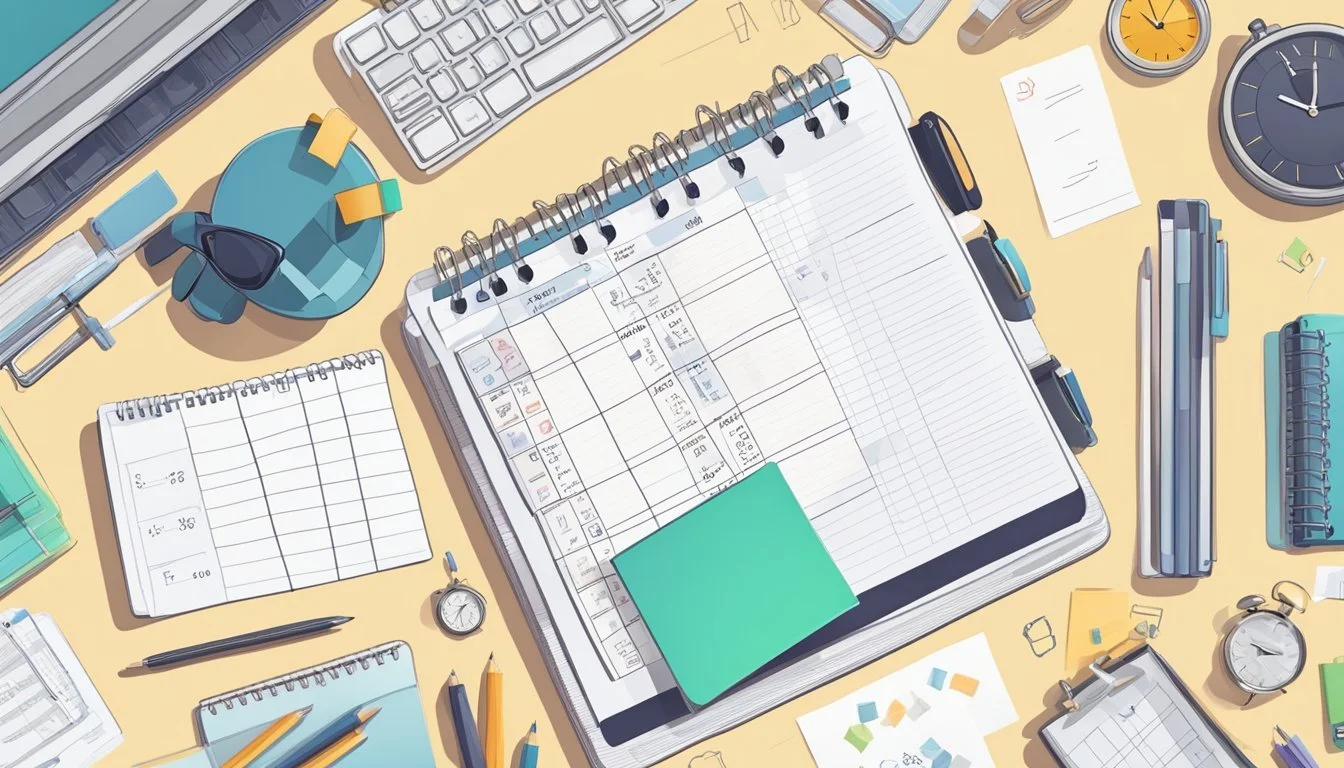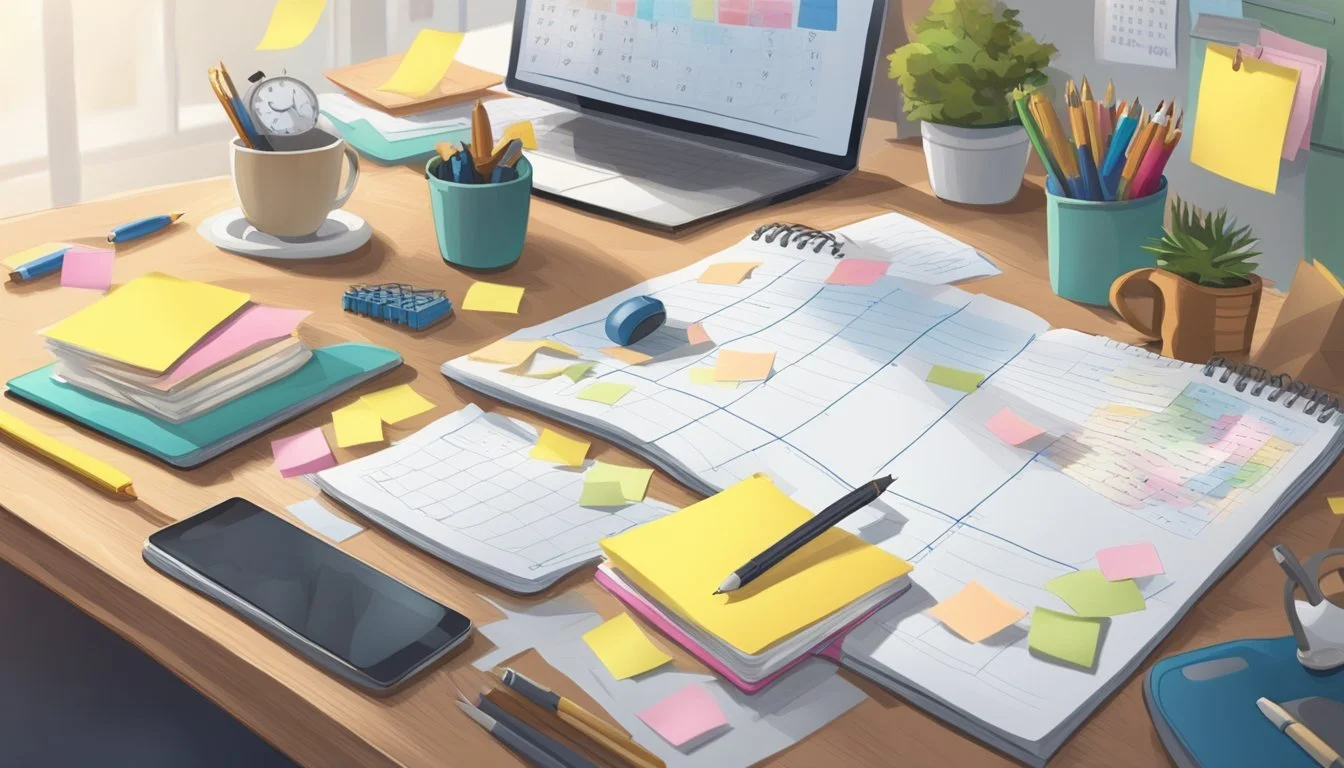7 Tips for Supporting a Partner with ADHD
Strengthening Your Relationship
Navigating a relationship with someone who has ADHD can present unique challenges and opportunities for growth. Understanding the dynamics and specific needs that come with ADHD is crucial for fostering a healthy partnership. How can one best support a partner with ADHD to ensure both individuals' well-being and relationship satisfaction?
Effective communication, mutual understanding, and practical strategies can significantly enhance relationship quality. By embracing informed approaches, couples can navigate ADHD’s impact and create a supportive environment that benefits both partners.
1) Maintain Open Communication
Maintaining open communication is essential when supporting a partner with ADHD. It begins with being honest about one's own experiences and challenges. This honesty builds trust and fosters a strong, empathetic connection.
Clear and concise communication helps avoid misunderstandings. Utilizing straightforward language and active listening ensures that both partners feel heard and understood. This approach helps reduce potential conflicts.
It's beneficial to establish regular check-ins. These discussions provide opportunities to talk about feelings, concerns, and progress. Regular communication helps keep both partners aligned and aware of each other's needs.
Visual aids can enhance clarity. Tools like calendars, to-do lists, and reminders can support memory and organization. These visual cues keep everyone on the same page and reduce anxiety related to forgotten tasks.
Encouraging each other to share thoughts and feelings openly promotes a sense of security. When both partners feel comfortable expressing themselves, they are more likely to navigate challenges together effectively.
Addressing issues immediately can prevent escalation. Prompt communication about any difficulties or frustrations can lead to quicker resolutions and a more harmonious relationship.
Lastly, practicing patience and empathy is crucial. Understanding that ADHD can impact communication styles and responses helps both partners work together more harmoniously.
2) Establish Routines Together
Creating routines can help both partners manage daily tasks more effectively. Routines add structure to daily life and reduce stress by minimizing uncertainties.
Setting up consistent schedules for chores, meals, and other daily responsibilities can provide stability. This allows both partners to know what to expect, making household management smoother.
Shared routines can also strengthen the relationship by promoting cooperation. For instance, meal planning together can ensure that responsibilities are evenly distributed, fostering teamwork.
Using tools like calendars, task lists, and reminders can aid in maintaining these routines. Digital apps or physical planners can both be effective in keeping track of tasks and commitments.
Building these routines jointly ensures that both partners have a say in how their daily lives are organized. This mutual agreement enhances communication and accountability.
By integrating routines, partners can better manage the symptoms of ADHD. Consistent routines help minimize forgetfulness and impulsiveness, which are common challenges in ADHD.
Establishing such routines is not just about productivity; it’s also about creating a supportive environment. This adds predictability and reduces the potential for conflicts over unmet expectations.
3) Prioritize Self-Care
Focusing on personal well-being is essential for both partners in a relationship involving ADHD. Self-care helps manage stress and maintain emotional balance.
Encourage activities that rejuvenate the mind and body. This could include hobbies, physical exercise, or mindfulness practices. These activities provide necessary breaks and help in recharging.
It's important to recognize that neglecting self-care can lead to burnout. Engaging in activities that one enjoys or finds relaxing can alleviate the strain that might come with supporting a partner with ADHD.
Taking time for oneself also sets a positive example for the partner with ADHD. It demonstrates the importance of self-care and encourages them to adopt similar healthy habits. Prioritizing personal well-being strengthens the ability to offer sustained support over time.
4) Set Clear Expectations
Setting clear expectations is essential when supporting a partner with ADHD. Clear communication helps both partners understand each other's needs, limitations, and responsibilities. It is useful for preventing misunderstandings and fostering a sense of mutual respect.
People with ADHD often struggle with time management and organization. Therefore, it can be helpful to create a detailed plan that outlines specific tasks and deadlines. This can involve using tools like calendars or to-do lists.
Both partners should express their expectations openly. Discussing priorities and setting realistic goals can aid in managing day-to-day responsibilities more effectively. This practice helps in reducing frustration and building a stronger partnership.
Regular check-ins can be beneficial to reassess and adjust expectations as needed. Life is dynamic, and flexibility is essential. Regular communication ensures that both partners feel heard and valued, keeping the relationship healthy.
For more insight on managing ADHD-related challenges and expectations, visit Psych Central and explore their tips on navigating relationships with ADHD.
5) Offer Gentle Reminders
Offering gentle reminders can help a partner with ADHD stay on track without feeling nagged or criticized. These reminders should be approached with patience and understanding.
Using visual aids like sticky notes or digital reminders can be effective. These tools provide a clear, non-intrusive way to remind them of tasks or commitments.
Creating a routine of regular check-ins can be helpful as well. This establishes a habit of discussing plans and deadlines without creating additional stress.
It's important to communicate these reminders calmly and kindly. This ensures that the approach remains supportive rather than confrontational.
Additionally, setting up shared calendars can provide mutual visibility into schedules and commitments. This fosters cooperative planning and reduces the need for verbal reminders.
Maintaining a positive tone when offering reminders reinforces a supportive environment. It underscores the effort to help rather than control.
Lastly, acknowledging and celebrating completed tasks bolsters encouragement. Positive reinforcement can motivate and affirm the progress being made.
6) Provide Unconditional Support
Being a supportive partner for someone with ADHD means offering understanding and encouragement without judgment. It's crucial to recognize that their struggles with attention and organization are not due to a lack of effort.
Unconditional support involves patience. When your partner forgets important dates or misplaces items, respond with kindness rather than frustration. This approach fosters a positive environment where they feel safe.
Encourage your partner's strengths. ADHD can come with unique talents, such as creativity or high energy levels. By focusing on and celebrating these attributes, you help build their confidence.
Listening actively is vital. Ensure your partner feels heard and validated. Together, work on communication strategies that can help both of you manage the challenges ADHD presents.
Practicing empathy can strengthen your relationship. Imagine how daily tasks might feel more challenging for them. This perspective can help you offer the right kind of support.
Remind them that seeking professional help is a positive step. Therapists or counselors can provide strategies specifically tailored for ADHD management. Regularly checking in can also show your continued support.
Creating a calm and organized home environment can significantly assist someone with ADHD. Establish routines and provide gentle reminders, which can help in managing symptoms and reducing stress levels.
7) Celebrate Small Wins
Celebrating small successes is crucial when supporting a partner with ADHD. Achieving these small milestones can boost their confidence and motivation. Recognizing progress, no matter how minor, helps maintain momentum in their journey.
Acknowledge their efforts consistently. Simple gestures like verbal praise or a small treat can reinforce positive behavior. This recognition can make a significant difference in their self-esteem.
Make these celebrations meaningful. Tailor them to what your partner enjoys or values. Whether it's a favorite snack or a shared activity, the key is to make them feel appreciated and seen.
Incorporate regular check-ins about their accomplishments. This not only keeps track of their progress but also creates opportunities for continual support and encouragement.
Celebrating small wins can transform the perception of typically challenging tasks. Setting achievable goals and celebrating their completion can turn a mundane routine into a series of gratifying experiences.
For more insights on the importance of recognizing achievements, visit Why It's Important to Celebrate Small Successes.
Encourage a positive outlook by focusing on growth and improvement. Celebrating small wins helps build a supportive environment where your partner feels empowered and motivated.
Understanding ADHD in Adults
ADHD in adults can manifest differently than in children, causing unique challenges in daily life and relationships. Recognizing the symptoms and addressing common hurdles are vital steps toward managing its impact effectively.
Symptoms and Diagnosis
Adult ADHD often includes symptoms such as inattention, hyperactivity, and impulsivity. Inattention may present as difficulty focusing on tasks or listening closely during conversations. Hyperactivity could involve restlessness or a constant need to be on the move, while impulsivity might be seen in hasty decisions without considering consequences.
Diagnosis typically involves a comprehensive evaluation by a professional, who will assess the individual's history and symptoms. Screening tools, interviews, and sometimes input from close friends or family are used to form a thorough picture of the condition. Accurate diagnosis is crucial because undiagnosed ADHD can lead to misunderstandings and stress within personal and professional spheres.
Common Challenges in Relationships
Relationships where one partner has ADHD can face distinct hurdles. The ADHD partner may struggle with forgetfulness and inattentiveness, leading to missed appointments or incomplete tasks. This can create frustration and perceived imbalance in responsibilities, often making the non-ADHD partner feel overwhelmed.
Communication issues also arise when ADHD symptoms interfere with active listening or maintaining focus during discussions. Misunderstandings and conflicts may become frequent, as behaviors like impulsivity or emotional dysregulation can lead to unintentional hurtful remarks or actions.
Recognizing these difficulties is the first step in addressing them. Couples can benefit from strategies such as structured routines, clear communication methods, and seeking professional help like therapy or coaching to foster a more supportive and understanding relationship environment. For additional tips, Psych Central provides guidance on navigating these challenges effectively.
Effective Communication Strategies
Effective communication is essential for any relationship, and it becomes even more crucial when one partner has ADHD. Focus on active listening and setting clear boundaries and expectations to improve the connection and reduce misunderstandings.
Active Listening Techniques
Active listening involves fully concentrating, understanding, responding, and remembering what the other person is saying. This is critical when communicating with a partner with ADHD, as it helps minimize distractions and promotes mutual respect.
Eye contact is key in active listening; it shows engagement and prevents wandering attention.
Reflective listening helps clarify statements by paraphrasing what the speaker has said. For example, saying, "What I hear you saying is..." can ensure both parties are on the same page.
Nonverbal cues like nodding and leaning forward can reinforce that one is fully present in the conversation.
By incorporating these techniques, partners can foster a more inclusive and effective dialogue that respects the unique challenges of ADHD.
Setting Boundaries and Expectations
Establishing boundaries and setting clear expectations are essential for managing ADHD in a relationship. Clearly defined boundaries help avoid misunderstandings and ensure that both partners have a mutual understanding of their needs and limitations.
It’s important to set specific, realistic goals and communicate them clearly. For instance, agreeing on time frames for completing household tasks helps prevent frustration.
Regular check-ins are useful to discuss any adjustments needed to these expectations, ensuring both partners feel heard and valued.
Visual aids such as calendars and lists can also help keep track of responsibilities and reduce the cognitive load on the partner with ADHD.
By maintaining transparent communication and regularly revising expectations, couples can create a harmonious and supportive relationship environment.





